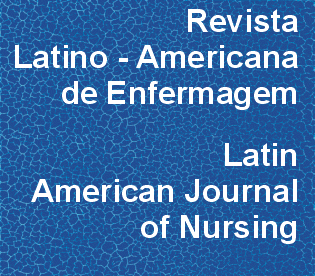Chronic health conditions in adults: concept analysis
DOI:
https://doi.org/10.1590/S0104-11692007000400011Keywords:
chronic illness, health, adult, concept formationAbstract
This study aimed to define the concept of chronic health condition in adults as presented in literature. An evolutionary perspective of concept analysis was used, as presented by Rodgers, emphasizing the essential attributes, antecedents, consequences and related concepts. The adult's chronic health condition was presented by the characteristics of permanence, irreversibility, residual handicap, incurable and degenerative as essential attributes. The antecedents were: genetic heritage, old age, birth condition, smoking and foods with saturated fat; and, for the consequences: physical, social and psychological changes, handicaps and inabilities, life style changes, needs to adapt and cope. Related concepts were: not transmissible diseases, functional deficiency, limitations, illness or impairment for more than three months. Chronic health condition is a complex construction of concepts defined as a modifying force of the life process over time.Downloads
Download data is not yet available.
Downloads
Published
2007-08-01
Issue
Section
Original Articles
License
RLAE’s authorship concept is based on the substantial contribution by each of the individuals listed as authors, mainly in terms of conceiving and planning the research project, collecting or analyzing and interpreting data, writing and critical review. Indication of authors’ names under the article title is limited to six. If more, authors are listed on the online submission form under Acknowledgements. The possibility of including more than six authors will only be examined on multicenter studies, considering the explanations presented by the authors.Including names of authors whose contribution does not fit into the above criteria cannot be justified. Those names can be included in the Acknowledgements section.
Authors are fully responsible for the concepts disseminated in their manuscripts, which do not necessarily reflect the editors’ and editorial board’s opinion.
How to Cite
Freitas, M. C. de, & Mendes, M. M. R. (2007). Chronic health conditions in adults: concept analysis. Revista Latino-Americana De Enfermagem, 15(4), 590-597. https://doi.org/10.1590/S0104-11692007000400011



